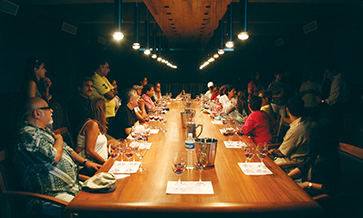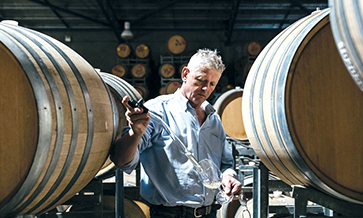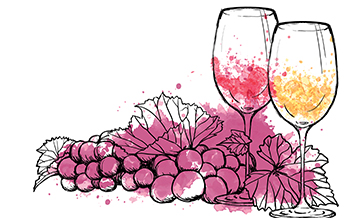There has been a change in the demographic and consumption has shifted away from star hotels to stand-alone restaurants, who are more interested in pushing Indian wines for various reasons. That has made Indian wines more accessible.
The stigma around wine as an alcoholic drink is also a lot lower now. Visitors from three generations of a family are comfortable to consume together in a nice, casual atmosphere.
Sangria promotions in restaurants form a big part of wine consumption. Some companies frown on it as there is no brand building; but we feel it can be a stepping stone for those consumers to graduate to varietal wines.
Home delivery and digital marketing during this pandemic has helped us to connect better with consumers, who would earlier rely only on the wine shop in their neighbourhood.
In Maharashtra, wine and beer shop licenses have helped broaden the market outside of the typical “wine shops”.
We have stopped doing wine dinners in high-end restaurants, where we would see the same faces each time! We now focus on activations in smaller cafes and restaurants, where the sitting is more informal. Breaking that formality barrier of wine is the key to adding more consumers.
Ways forward
Star hotels and fine dining establishments are happy to sell more imported wines for various reasons. Also pricing is an inhibition in bigger restaurants. That said, more wine-by-the-glass programmes can help boost Indian wine consumption.
Many hotels, in spite of buying duty-free imported wines, don’t always pass on the price benefit to consumers. I think it is possible to have a dedicated Indian wine programme. There are many Indian wines which are actually better than cheaper imported wines – it’s a matter of changing people’s perceptions.
Governments must remember that the wine industry is dependent on farmers for grapes. Wineries offer farmers not only regular income, but also crop diversification options. It is relatively easy to grow wine grapes than table grapes. Prices are stable and not affected by export market volatility.
The Maharashtra government has kept excise duty at zero, which has had a positive effect. Easier licencing for beer and wine shops has increased the avenues for us to sell through. As a producing state Maharashtra has been very supportive of the industry.
Permission for home delivery of wine and beer in more markets – even beyond the Covid-19 pandemic period – and easy licensing for departmental stores to sell soft liquor should be the way forward for state governments across India.
Tourism effect
Most of our visitors are from various parts of Maharashtra and neighbouring Gujarat, across all age profiles. We have a lot of women groups who come in from Mumbai; and a lot of families with kids too. We have a footfall of more than 50,000 people per year.
They come primarily for the experience of being at a vineyard; not an outing to get drunk. It is a full tourism experience, and most return with greater awareness of and a positive image of wines.
Retailers in Mumbai and Pune have seen a rise in organic demand and are happy to stock our wines! Our Tasting Room and restaurant are high-margin profit centres for us because we sell directly to the consumer.
York Winery is not in the ready-to-drink category; but we realise that it has the potential to pull in a new type of consumer to the fold. Fruit wines have a long way to go to gain recognition and consumer acceptance.













